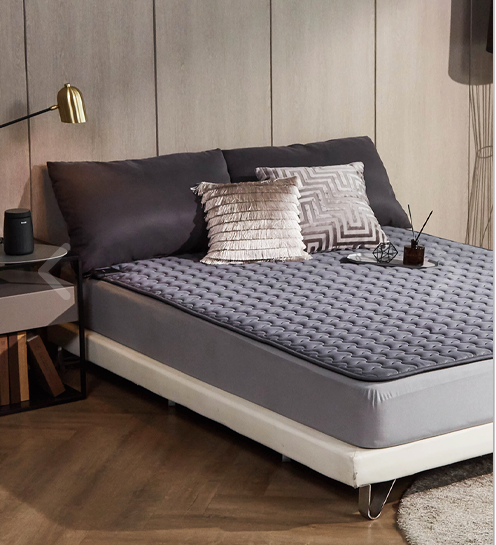Electronics
Kiturami's carbon mats, hot ticket in Korea this winter
They are increasingly popular as they have none of the inconveniences of electric and hot-water mats
By Dec 16, 2022 (Gmt+09:00)
1
Min read
Most Read
LG Chem to sell water filter business to Glenwood PE for $692 million


Kyobo Life poised to buy Japan’s SBI Group-owned savings bank


KT&G eyes overseas M&A after rejecting activist fund's offer


StockX in merger talks with Naver’s online reseller Kream


Mirae Asset to be named Korea Post’s core real estate fund operator



Convenience and less heating costs have been changing the shape of South Korea's heated mat market which has been traditionally led by electric mats and hot-water mats.
Kiturami, a domestic boiler maker with a half-century history, set a cumulative sales record of more than 200,000 carbon mats in just two years since it first released the product in November 2020.
Analysts estimate that the cumulative revenue for 200,000 carbon mats would exceed 60 billion won ($45.8 million).
They say that the mats are increasingly popular as they have none of the inconveniences of electric and hot-water mats such as concerns over electromagnetic waves and fire hazards in electric mats and water leaks and the need for replenishment in hot-water mats.
To boot, they consume less energy for heating.
Usually, the peak season for heating mats is from October to November, but sales of carbon mats show no signs of abating in December.
Sales during the first 15 days of this month jumped 15% year-on-year.
"As a result of self-investigating the frequency of consumers' portal search terms, we found that 'carbon mats' are more than 'hot-water mats'," said an official of Kiturami.
Kiturami was the first boiler maker to release a carbon mat two years ago, an improvement on the first-generation electric mat released in the 1990s and the second-generation hot-water mat popular in the 2010s.
It applied an aramid carbon heating wire to the mat, which is five times stronger than steel and can endure high temperatures of 500 degrees Celsius.
The carbon mat was designed with low voltage (DC 24 volt) and passed 800,000 bending tests, reducing the risk of fire, overheating, and electromagnetic waves, which are problems of electric mats, and also eliminating the inconvenience of hot-water mats such as water leakage, draining and water filling.
The mats are easy to wash and store with a lightweight design and multi-folded structure.
Write to Dae-Kyu Ahn at powerzanic@hankyung.com
More to Read
-
 CompaniesKiturami Boiler bets on chip, battery facility systems
CompaniesKiturami Boiler bets on chip, battery facility systemsMar 30, 2022 (Gmt+09:00)
4 Min read
Comment 0
LOG IN


